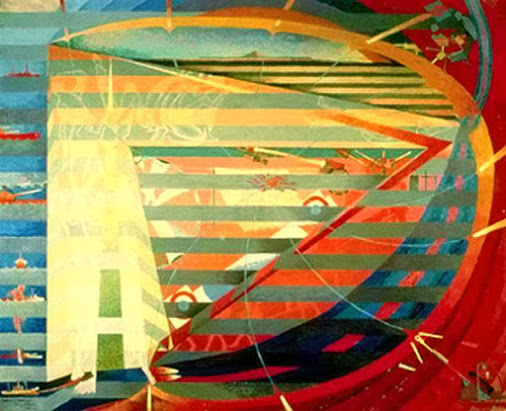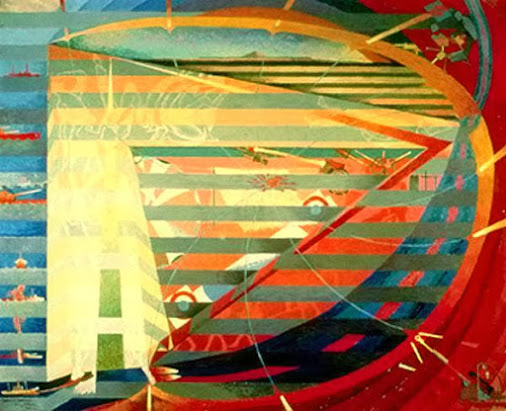Bulletin #81 - Mar 2015
Churchill & “Expression des Dardanelles”

March 7, 2015
The Gallipoli Campaign Seen Through Art
By ANTOINE CAPET
 Historians of art, especially specialists of early-twentieth century French avant-garde movements, are familiar with the experimental work of Henry Valensi (1883–1960), one of the prime movers of ‘Musicalisme’. He made a name for himself in 1912, when he took part in the Salon de la Section d’Or in Paris, with other famous avant-gardistes like Marcel Duchamp or Picabia.
Historians of art, especially specialists of early-twentieth century French avant-garde movements, are familiar with the experimental work of Henry Valensi (1883–1960), one of the prime movers of ‘Musicalisme’. He made a name for himself in 1912, when he took part in the Salon de la Section d’Or in Paris, with other famous avant-gardistes like Marcel Duchamp or Picabia.
What is less well known is that he participated in the Dardanelles campaign on the French side, after joining the Army as a volunteer. General Gouraud, commander-in-chief of the French Expeditionary Force in 1915, made him an official painter on his Staff. Valensi then made a large number of sketches and watercolours, some as preparatory work for full-size oils. In 1917, he had a personal Exhibition at the prestigious Galerie Druet, Paris, with apparently over a hundred drawings and paintings. Many went into State collections, and are now deposited at the Hôtel des Invalides (Bibliothèque de Documentation Internationale Contemporaine).
A major Exhibition, entitled ‘Vu du front’ (Seen from the Front) ran from 15 October 2014 to 25 January 2015 at the Invalides—and it included the great oil by Valensi, Expression des Dardanelles, painted in 1917 from sketches made on the spot in 1915. A small-size reproduction cannot really do justice to this highly elaborate composition. Seen from afar, it looks as a purely abstract, or at least slightly geometrical, picture. It is only when one looks at it closely that the many military and naval details begin to appear between the ‘bars’.
As will be argued during the 2015 Churchill Conference in May, the Dardanelles Expedition is largely forgotten in France today—a mere footnote in the grand narrative centering on the Marne, Verdun and Foch’s final victorious campaign, described in such glowing terms by Churchill (who on the other hand only mentions French participation at Gallipoli in passing). But it was more meaningful to a participant like Valensi, who made it the subject of one of his masterpieces, with its painstaking attention to the minute touches which would allow a highly-sophisticated reconstruction of the grandiose ‘theatre’—in all meanings of the word—as he saw it. And we also have an indirect indication that two years later the French public had not lost interest in these momentous events in spite of its preoccupations over the despairing deadlock which grimly continued to prevail on the Western Front.
Professor Capet of the University of Rouen will be discussing French involvement in the Dardanelles campaign at the 32nd Annual Churchill Conference taking place in Oxfordshire from 26–29 May.
Subscribe
WANT MORE?
Get the Churchill Bulletin delivered to your inbox once a month.






